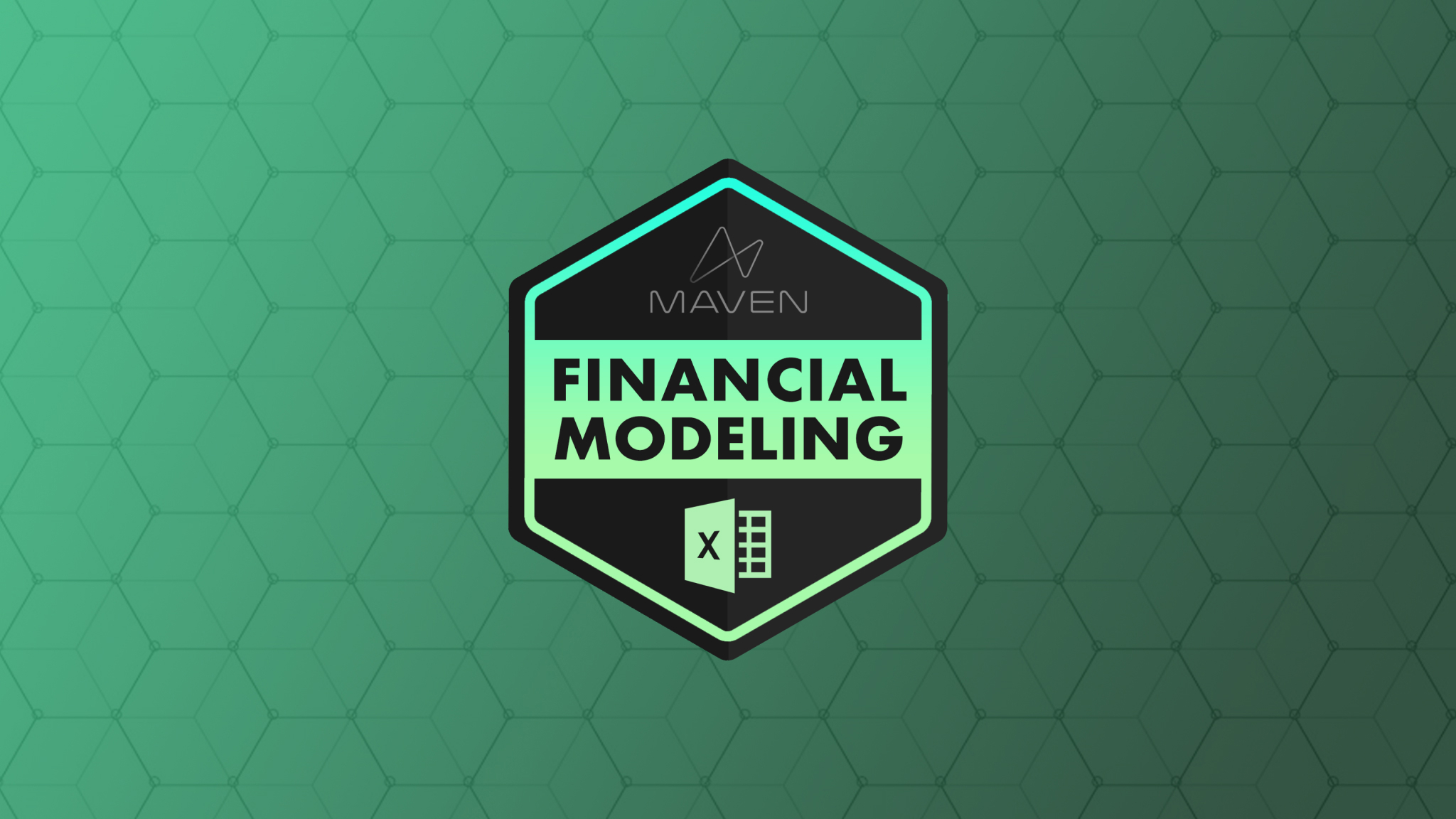
Self-Paced Course
Intro to Financial Modeling
Learn the basics and best practices of financial modeling, including forecasting, flows & balances, three statement models and more.


Course Description
This is a beginner-friendly, project-based course designed to help you build financial modeling literacy.
We'll start with an introduction to the financial modeling landscape, including common definitions, key players, types of models, and general standards and best practices.
From there we'll introduce the concept of flows and balances, and discuss how these elements form the basis for all types of financial models.
Last but not least we’ll dive into three statement modeling, which forms the foundation for more advanced financial modeling techniques. We’ll introduce key accounting principles, review common examples of balance sheets, income statements and cash flow models, and discuss how retained earnings and net cash tie these statements together.
Throughout the course you'll play the role of a Financial Modeling Consultant for Sarah’s Bakery, a small bakery operating in London. Your role is to help Sarah build some basic models to assess the financial health and profitability of her business, using the tools and techniques you learn throughout the course.
If you're a data analyst or aspiring finance professional looking for an introduction to the world of financial modeling, this is the course for you.
COURSE CONTENTS:
4 hours on-demand video (6.5 CPE credits)
4 quizzes
3 course projects
2 skills assessments (1 benchmark, 1 final)
COURSE CURRICULUM:
- Welcome to the Course!
- Benchmark Assessment
- Course Structure & Outline
- DOWNLOAD: Course Resources
- Introducing the Course Project
- Setting Expectations
- Section Intro
- The Single Most Important Lesson
- Why Learn Financial Modeling?
- The Four Key Questions
- Financial Modeling Definitions
- Key Players in Financial Modeling
- The Business Lifecycle
- Internal Finance Stages
- Model Types: Valuation Model
- Model Types: Project Finance
- Model Types - Internal Forecast
- Model Types: Actuals vs Budget
- Key Takeaways
- QUIZ: Financial Modeling 101
- Section Intro
- Industry Standards
- ICAEW 20 Principles
- ICAEW Review
- Universally Agreed Principles
- Periodicity
- Practical Examples
- Common Modeling Mistakes
- Key Takeaways
- QUIZ: Standards & Best Practices
- Project Introduction
- Solution Walkthrough
- Section Intro
- Balance & Flow Definitions
- Cash Flow Example: Sarah's Bakery
- Updating Sarah's Revenue Forecast
- Capital Expenditure (Capex)
- Key Takeaways
- QUIZ: Accounting Fundamentals
- Project Introduction
- Solution Walkthrough
- Section Intro
- The Accounting Equation
- Key Accounting Principles: Matching & Accruals
- The Three Financial Statements
- The Balance Sheet
- Balance Sheet Example
- The Income Statement
- The Cash Flow Statement
- Retained Earnings & Cash
- Retained Earnings & Cash Example
- Three Statement Model Example
- ASSIGNMENT: Amazon's 2021 Annual Report
- SOLUTION: Amazon's 2021 Annual Report
- Key Takeaways
- QUIZ: Accounting Fundamentals
- Project Introduction
- Solution Walkthrough
- Final Assessment
- Key Course Takeaways
- What to Learn Next
- Join Full Stack Modeller
- Course Feedback Survey
- Share the love!
- Next Steps
WHO SHOULD TAKE THIS COURSE?
- Data Analysts or aspiring finance professionals who want to develop basic financial modeling literacy
- Anyone interested looking for a hands-on, beginner-friendly introduction to the world of financial modeling
WHAT ARE THE COURSE REQUIREMENTS?
- Microsoft Excel (we'll be using Excel for Office 365 on a PC)
- Familiarity with Excel formulas & functions is strongly encouraged, but not required
WHAT ARE THE COURSE OBJECTIVES?
Identify who builds financial models, why they are built, what types of models exist, and how they are typically developed
Identify the most prominent financial modeling industry standards, best practices and principles
Identify common techniques for modeling flows, balances, and periodicity
Identify the components of three statement models, including balance sheets, income statements, cash flows and retained earnings
CPE ACCREDITATION DETAILS:
CPE Credits: 6.5
Field of Study: Information Technology
Delivery Method: QAS Self Study
Maven Analytics LLC is registered with the National Association of State Boards of Accountancy (NASBA) as a sponsor of continuing professional education on the National Registry of CPE Sponsors. State boards of accountancy have the final authority on the acceptance of individual courses for CPE credit. Complaints regarding registered sponsors may be submitted to the National Registry of CPE Sponsors through its website: www.nasbaregistry.org.
For more information regarding administrative policies such as complaints or refunds, please contact us at admin@mavenanalytics.io or (857) 256-1765.
*Last Updated: April 12, 2023
Start learning for FREE, no credit card required!
Every subscription includes access to the following course materials
- Interactive Project files
- Downloadable e-books
- Graded quizzes and assessments
- 1-on-1 Expert support
- 100% satisfaction guarantee
- Verified credentials & accredited badges

Ready to become a
data rockstar?
Start learning for free, no credit card required!